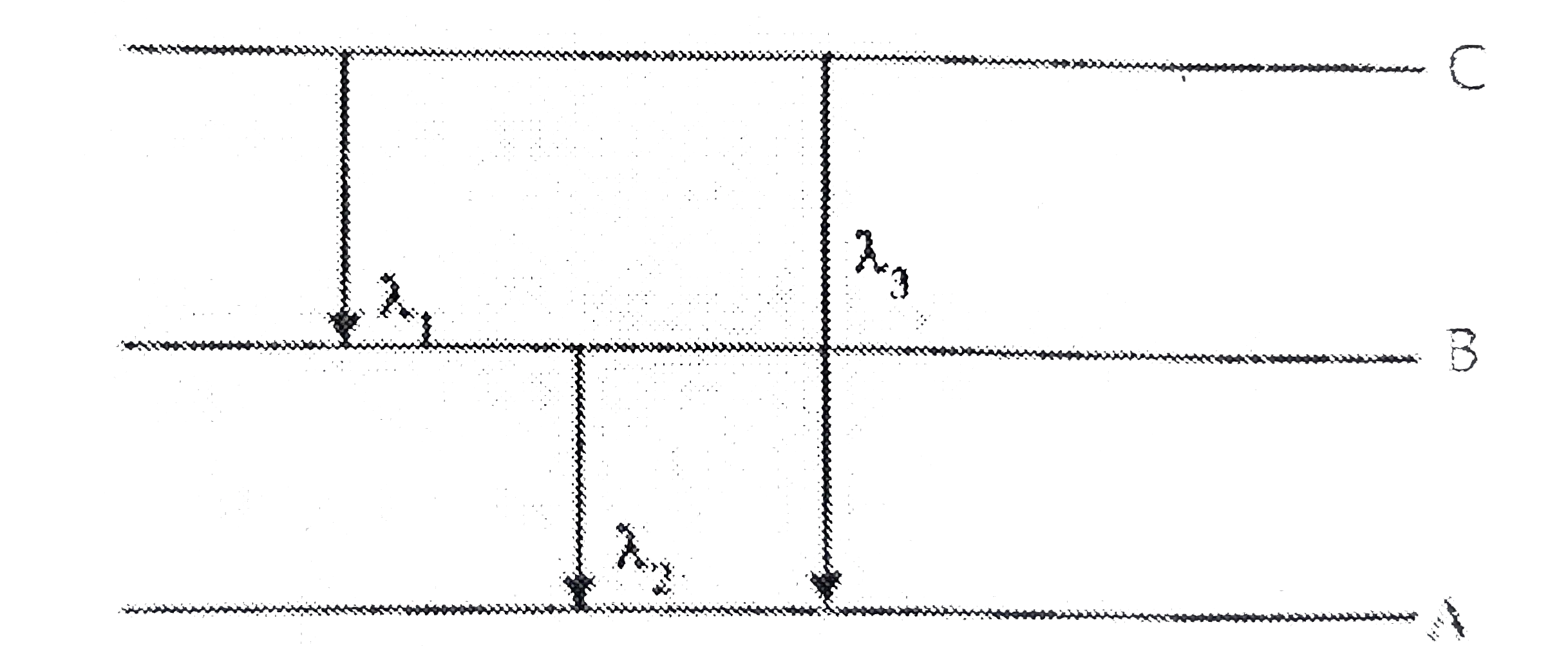In Bohr's stationary orbits:
(a) electrons do not move
(b) electrons move emitting radiations
(c) energy of the electron remains constant
(d) angular momentum of the electron is h/2π
The correct Answer is:C
To solve the question regarding Bohr's stationary orbits, we will analyze each of the provided statements based on Bohr's theory of the atom.
1. Understanding Bohr's Theory:
- Bohr proposed that electrons revolve around the nucleus in fixed orbits, called stationary orbits. Each orbit corresponds to a specific energy level.
2. Analyzing the Statements:
- Statement 1: "Electrons do not move."
- This statement is incorrect. According to Bohr's theory, electrons are in constant motion around the nucleus in defined orbits.
- Statement 2: "Electrons move emitting radiations."
- This statement is also incorrect. If electrons emitted radiation while moving in their orbits, they would lose energy and spiral into the nucleus, making the atom unstable. Bohr's model states that electrons in stationary orbits do not emit radiation.
- Statement 3: "Energy of an electron remains constant."
- This statement is correct. In a stationary orbit, the energy of the electron remains constant as long as it stays in that orbit. The energy levels are quantized, meaning electrons can only occupy certain energy levels.
- Statement 4: "Angular momentum of the electron is h/2π."
- This statement is incorrect. According to Bohr's theory, the angular momentum of an electron in a stationary orbit is quantized and given by the formula L = n(h/2π), where n is the principal quantum number (the number of the orbit).
3. Conclusion:
- The only correct statement regarding Bohr's stationary orbits is that the energy of an electron remains constant in a stationary orbit. Therefore, the correct answer is option C.
Final Answer:
- The correct option is C: Energy of an electron remains constant.
- Bohr proposed that electrons revolve around the nucleus in fixed orbits, called stationary orbits. Each orbit corresponds to a specific energy level.
- Statement 1: "Electrons do not move."
- This statement is incorrect. According to Bohr's theory, electrons are in constant motion around the nucleus in defined orbits.
- Statement 2: "Electrons move emitting radiations."
- This statement is also incorrect. If electrons emitted radiation while moving in their orbits, they would lose energy and spiral into the nucleus, making the atom unstable. Bohr's model states that electrons in stationary orbits do not emit radiation.
- Statement 3: "Energy of an electron remains constant."
- This statement is correct. In a stationary orbit, the energy of the electron remains constant as long as it stays in that orbit. The energy levels are quantized, meaning electrons can only occupy certain energy levels.
- Statement 4: "Angular momentum of the electron is h/2π."
- This statement is incorrect. According to Bohr's theory, the angular momentum of an electron in a stationary orbit is quantized and given by the formula L = n(h/2π), where n is the principal quantum number (the number of the orbit).
- The only correct statement regarding Bohr's stationary orbits is that the energy of an electron remains constant in a stationary orbit. Therefore, the correct answer is option C.
- The correct option is C: Energy of an electron remains constant.
Topper's Solved these Questions
- ATOMIC STUCTUREBOOK - NARENDRA AWASTHI ENGLISHCHAPTER - ATOMIC STUCTUREEXERCISE - level 2
30 Videos
- ATOMIC STUCTUREBOOK - NARENDRA AWASTHI ENGLISHCHAPTER - ATOMIC STUCTUREEXERCISE - Level 3 (Passage 1)
3 Videos
- CHEMICAL EQUILIBRIUMBOOK - NARENDRA AWASTHI ENGLISHCHAPTER - CHEMICAL EQUILIBRIUMEXERCISE - Match the column
1 Videos
Similar Questions
Knowledge Check
(A) bohr's third postulaate states that the stationary orbits are those for which the angular momentum is some integral multiple of h2π.
(R) linear momentum of the electron in the atom is quantised.Aif both assertion and reason are true and reason is the correct explanation of assertion.Bif both assertion and reason are true but reason is not the correct explanation of assertion.Cif assertion is true but reason is false.Dif both assertion and reason are false.Assertion: Bohr had to postulate that the electrons in stationary orbits around the nucleus do not radiate.
Reason: According to classical physical all moving electrons radiate.Aif both assertion and reason are true and reason is the correct explanation of assertion.Bif both assertion and reason are true but reason is not the correct explanation of assertion.Cif assertion is true but reason is false.Dif both assertion and reason are false.
A body is dropped by a satellite in its geo-stationary orbit :
View Solution(i) State Bohr's quantization condition for defining stationary orbits . How does de- Broglie hypothesis explain the stationary orbits ?
(ii) find the relation beween the three wavelengths
λ1,λ2 and λ3 from the energy level diagram shown :

View SolutionWhen electrons revolve in stationary orbits,
View SolutionVelocity of an electron in the Iind stationary orbit of hydrogen atom is
View SolutionWhen an electron in hydrogen atom revolves in stationary orbit, it
View SolutionA: bohr's orbits are also called stationary states
R : Electrons are stationary in an orbit .
View Solution
